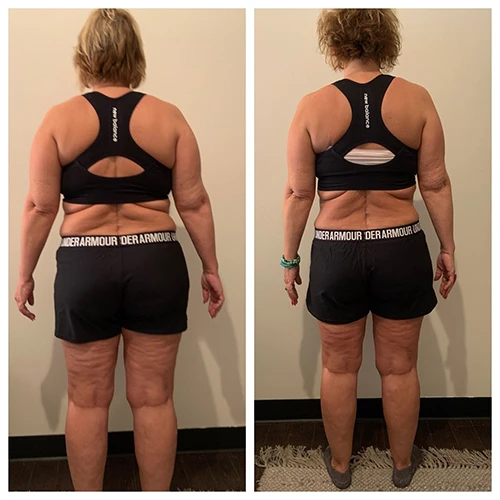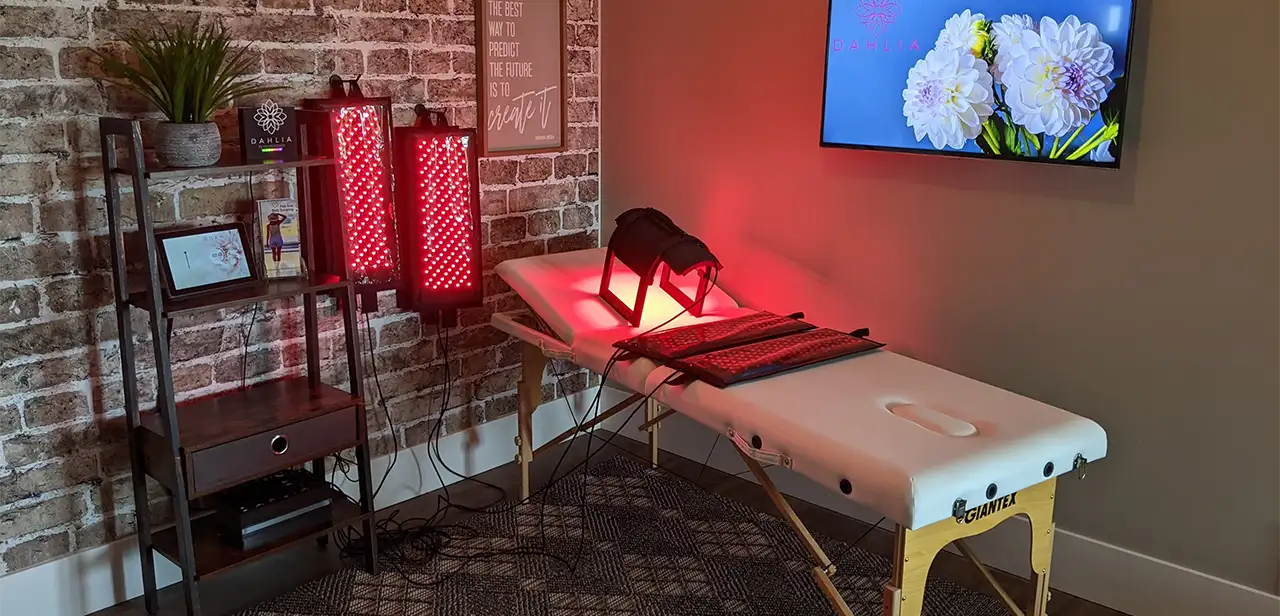Red light therapy operates on the principle of photobiomodulation, which involves using specific wavelengths of light to stimulate cellular function. Unlike ultraviolet (UV) light, which can be harmful in high doses, red and near-infrared light have longer wavelengths and lower energy levels, making them safe for therapeutic use. These wavelengths penetrate the skin and are absorbed by cells, where they trigger various biological responses.
The precise mechanisms by which red light therapy exerts its therapeutic effects are not fully understood, but researchers have proposed several theories. One prominent hypothesis is that red and near-infrared light stimulate the mitochondria, the powerhouse of the cell, to produce more adenosine triphosphate (ATP), the molecule that provides energy for cellular processes. This increased ATP production can enhance cellular metabolism and promote tissue repair and regeneration.
Additionally, red light therapy has been shown to modulate inflammation and oxidative stress, two processes that play crucial roles in many chronic diseases and conditions. By reducing inflammation and oxidative damage, red light therapy may help alleviate symptoms and promote healing in various tissues throughout the body.
Kari's Testimonial
Kari's Testimonial
Red light therapy operates on the principle of photobiomodulation, which involves using specific wavelengths of light to stimulate cellular function. Unlike ultraviolet (UV) light, which can be harmful in high doses, red and near-infrared light have longer wavelengths and lower energy levels, making them safe for therapeutic use. These wavelengths penetrate the skin and are absorbed by cells, where they trigger various biological responses.
The precise mechanisms by which red light therapy exerts its therapeutic effects are not fully understood, but researchers have proposed several theories. One prominent hypothesis is that red and near-infrared light stimulate the mitochondria, the powerhouse of the cell, to produce more adenosine triphosphate (ATP), the molecule that provides energy for cellular processes. This increased ATP production can enhance cellular metabolism and promote tissue repair and regeneration.
Additionally, red light therapy has been shown to modulate inflammation and oxidative stress, two processes that play crucial roles in many chronic diseases and conditions. By reducing inflammation and oxidative damage, red light therapy may help alleviate symptoms and promote healing in various tissues throughout the body.
Benefits of Red Light Therapy
The potential benefits of red light therapy are diverse and far-reaching, encompassing both physical and mental health. While research is ongoing, preliminary studies and anecdotal evidence suggest that red light therapy may offer the following advantages:
Physical Benefits:
- Accelerated wound healing: Red light therapy has been shown to promote the healing of wounds, cuts, and surgical incisions by enhancing cellular repair mechanisms.
- Pain relief: Many individuals report reductions in pain and discomfort after undergoing red light therapy sessions, making it a promising option for managing chronic pain conditions.
- Improved skin health: Red light therapy is commonly used in dermatology for its ability to stimulate collagen production, reduce wrinkles and fine lines, and improve overall skin tone and texture.
- Enhanced athletic performance: Some athletes incorporate red light therapy into their training regimens to speed up recovery, reduce muscle soreness, and improve physical performance.
Mental Health Benefits:
- Mood enhancement: Preliminary research suggests that red light therapy may have antidepressant effects by modulating neurotransmitter levels and promoting neurogenesis (the growth of new brain cells).
- Stress reduction: Exposure to red light may help lower levels of cortisol, the stress hormone, leading to feelings of relaxation and calmness.
- Improved sleep quality: By regulating circadian rhythms and promoting the production of melatonin, the hormone that regulates sleep-wake cycles, red light therapy may help individuals achieve better sleep.
Todd's Testimonial
Melissa's Testimonial
Marcus' Testimonial
Melissa's Red Light Testimonial
Karie's Testimonial
Alexia's Testimonial
Red Light Therapy for Weight Loss
Also known as low-level laser therapy (LLLT) or photobiomodulation (PBM), red light therapy involves exposing the body to low levels of red or near-infrared light. While it may sound like something out of a science fiction novel, the therapeutic potential of red light has been extensively studied and is increasingly being recognized by medical professionals. Let's delve into the fascinating world of red light therapy, exploring its mechanisms, benefits, and applications.

Before / After
Cellular Activity Stimulation
So, what's the magic behind RLT? This therapy's power lies in its ability to stimulate cellular activity, particularly in the mitochondria, our cells' powerhouse. By boosting the energy production of cells, RLT can accelerate healing, reduce inflammation and so much more.
Benefits of RLT
The potential benefits of red light therapy are diverse and far-reaching, encompassing both physical and mental health. While research is ongoing, preliminary studies and anecdotal evidence suggest that red light therapy may offer the following advantages:

Red light therapy in Waunakee WI represents a promising avenue for promoting health and wellness across various domains. From accelerating wound healing and reducing pain to improving skin health and enhancing mood, the potential benefits of red light therapy are vast and increasingly supported by scientific research. As our understanding of its mechanisms and applications continues to evolve, red light therapy may become an integral component of holistic healthcare approaches aimed at optimizing physical and mental well-being.
However, it's essential to approach red light therapy with caution, ensuring proper safety measures are in place and seeking guidance from healthcare professionals when needed. With its non-invasive nature and minimal side effects, red light therapy offers a beacon of hope for those seeking natural and effective solutions to improve their quality of life. Contact Back In Action Chiropractic today for more information or to get yourself set up with an appointment.
Only $79 For Your First Visit!
Applications of Red Light Therapy
Red light therapy can be administered in various settings, including clinics, spas, and even in the comfort of your own home with the use of specialized devices. Some common applications of red light therapy include:
- Dermatology: Red light therapy is widely used in dermatology for treating acne, eczema, psoriasis, and other skin conditions. It can also help reduce the appearance of scars, stretch marks, and cellulite.
- Pain Management: Many physiotherapy clinics and pain management centers offer red light therapy as a non-invasive option for relieving pain associated with arthritis, fibromyalgia, sports injuries, and other musculoskeletal disorders.
- Anti-aging Treatments: As mentioned earlier, red light therapy is valued for its ability to rejuvenate the skin and combat the signs of aging. It is often used in conjunction with other cosmetic procedures to enhance results.
- Sports Medicine: Professional athletes and fitness enthusiasts may use red light therapy to accelerate recovery from injuries, reduce inflammation, and improve muscle performance and endurance.
Safety Considerations
While red light therapy is generally considered safe when administered correctly, there are some precautions to keep in mind:
- Eye Protection: Direct exposure of the eyes to red or near-infrared light can potentially cause damage to the retina. Therefore, it is essential to wear appropriate eye protection, such as goggles or glasses, during red light therapy sessions.
- Skin Sensitivity: Individuals with photosensitive conditions or taking photosensitizing medications should exercise caution when undergoing red light therapy, as it may exacerbate their symptoms or cause adverse reactions.
- Consultation with a Healthcare Professional: Before starting red light therapy, especially if you have underlying health issues or are pregnant, it's advisable to consult with a qualified healthcare provider to ensure it is safe and appropriate for you.
Only $79 For Your First Visit!


